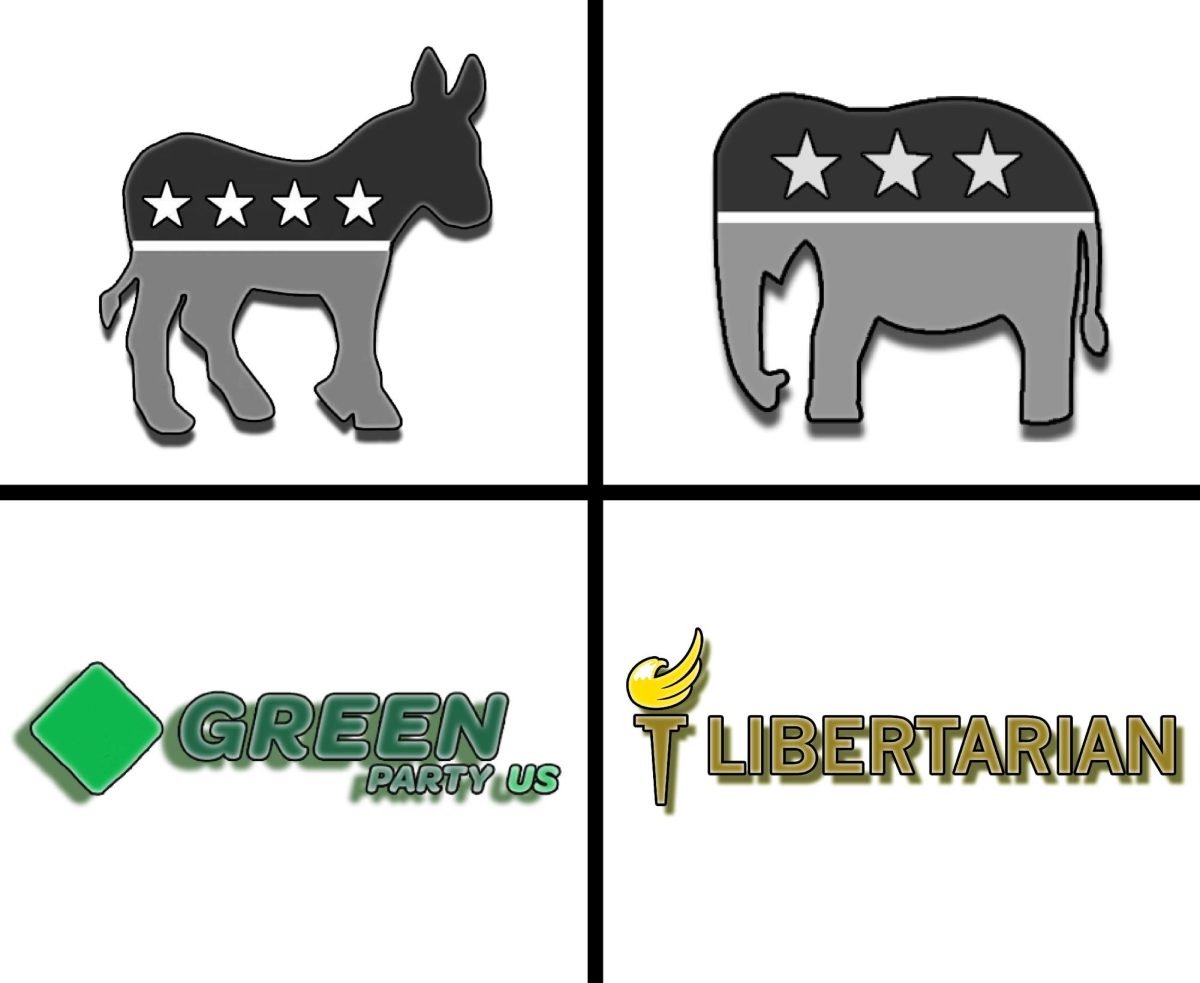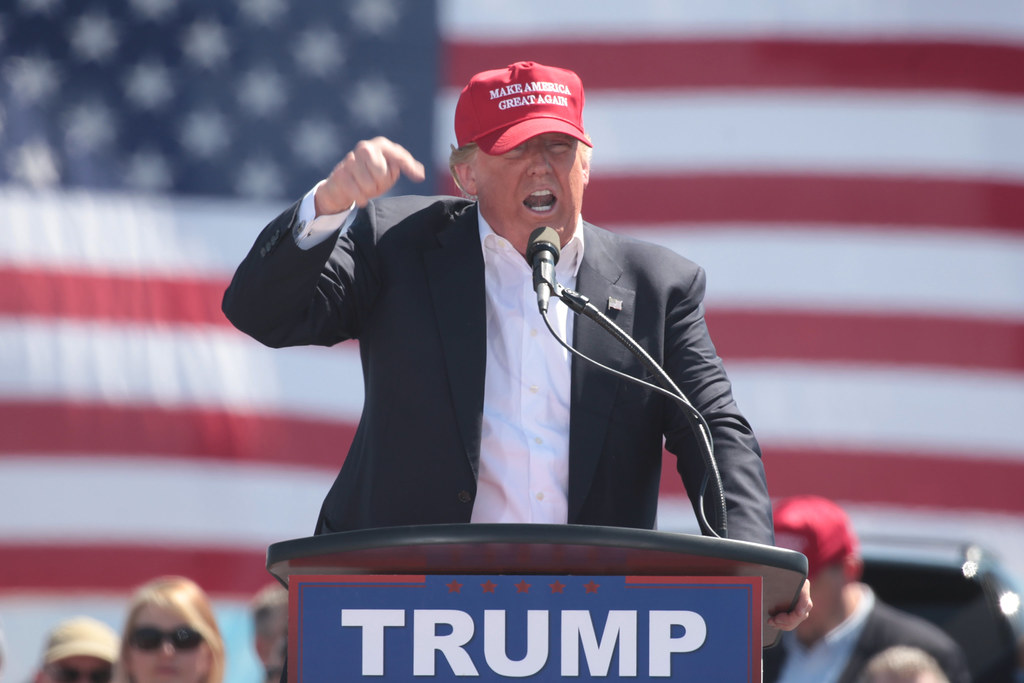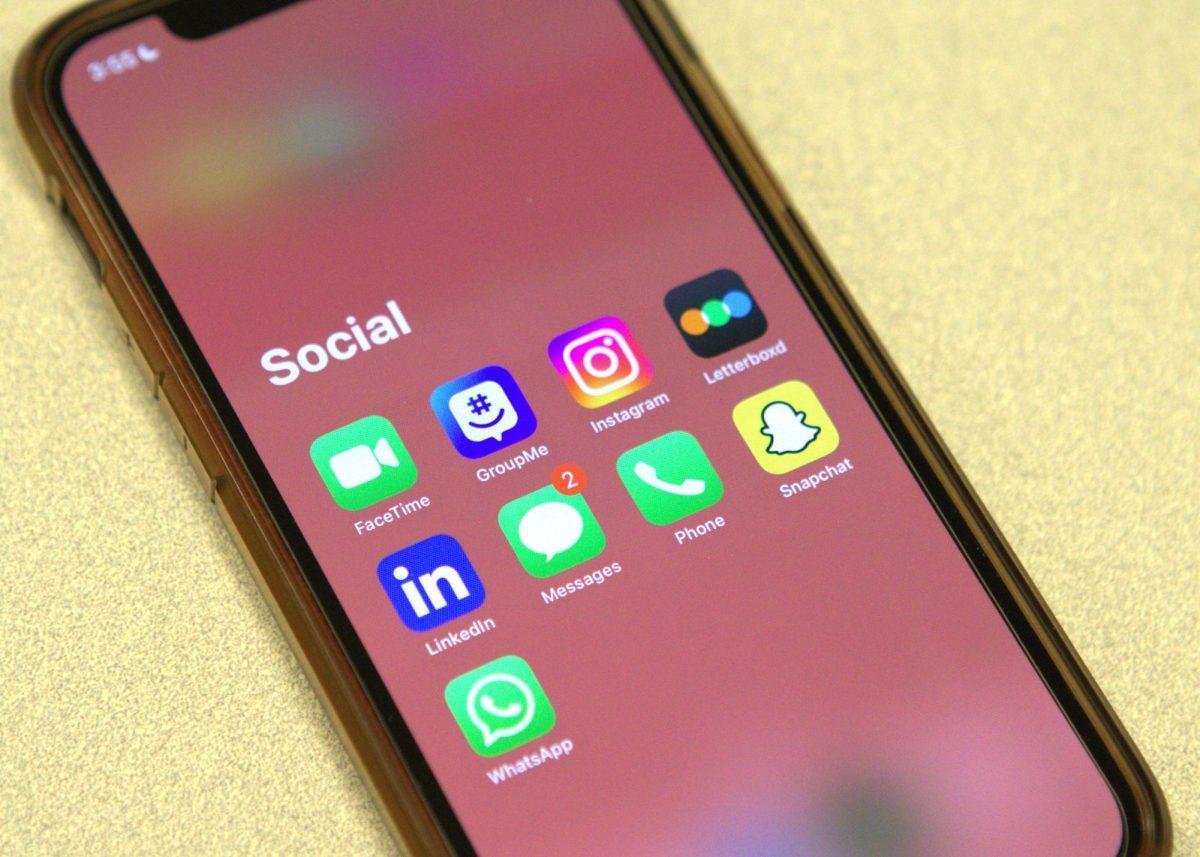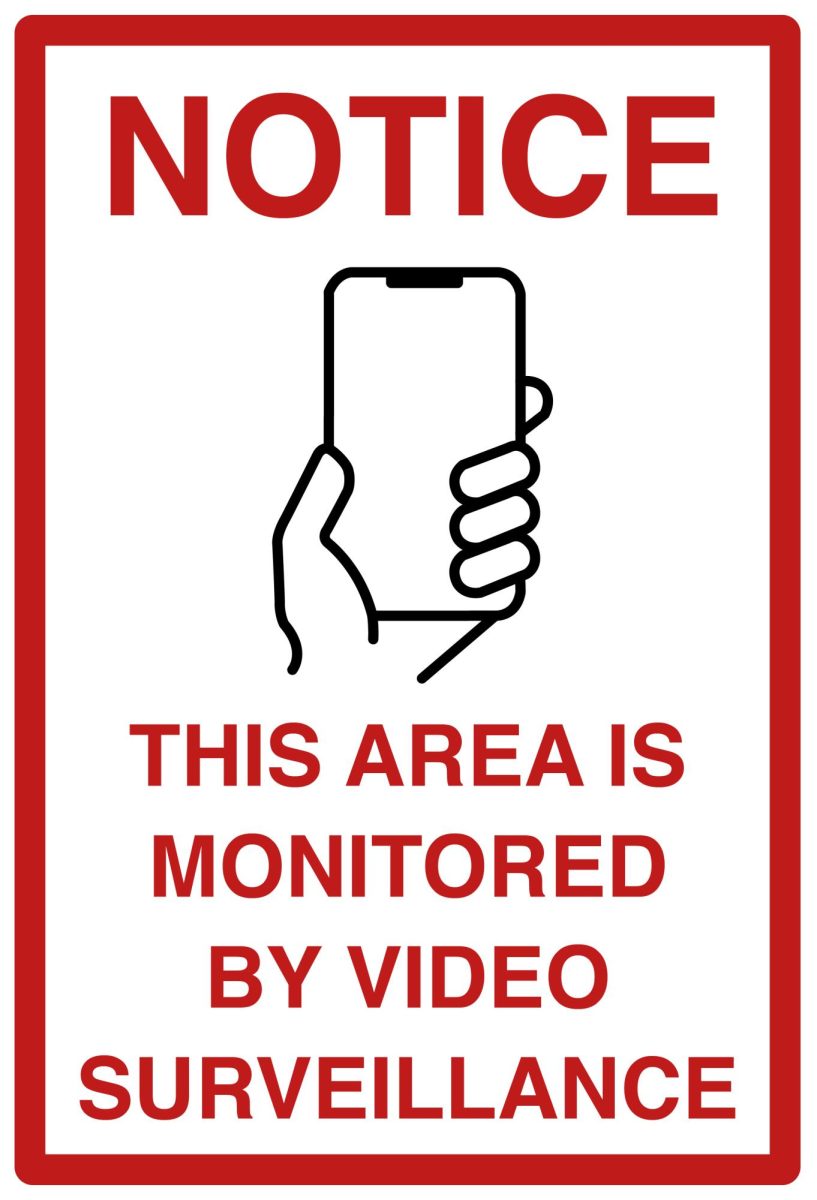Unless you’ve been living under a rock, you’ve probably seen a few political campaign ads in the weeks leading up to the 2024 presidential election.
Whether it’s the signs everywhere on campus, TV ads, TikTok videos or random bumper stickers, you’ve noticed — and probably gotten tired of — them. There are a lot of ads out there, and, consequently, there are a lot of people spending money on those ads.
What are the people running these ads trying to accomplish? Who are they trying to reach?
Maybe it goes without saying, but they’re going for the moderates and undecided Americans. The people who don’t think that Donald Trump is a fascist but who also believe that Kamala Harris won’t cause economic disaster or start World War III if she’s elected.
Evidently, the assumption in these ads is that you must be voting for either Trump or Harris and not anyone else. It’s fundamentally a bifurcated choice, a battle between good and evil. Which side is the savior of America depends on who’s writing the ad.
But is it fair to divide the choice in two, to assert that there are no other options for your vote?
No, it’s really not. There are perfectly legitimate and effective reasons to vote for third parties, and these reasons have been exemplified in American electoral history.
For those who are unaware, there are (basically) two other minor parties in the United States you can vote for: the Libertarian Party and the Green Party.
The Libertarian Party has a platform that generally advocates for social liberalism and economic conservatism, so they’re sort of like the Democrats on social policy and the Republicans on economics. They might support things like lowering taxes, legalizing marijuana and building a more isolationist foreign policy.
Alternatively, the Green Party supports what it calls the “Ten Key Values,” many of which are centered around improving the environment, providing for a more equitable distribution of economic resources and improving social freedoms. They might support things like stricter controls on polluting companies, more reinvestment in historically underprivileged communities and — like the Libertarians — a more isolationist foreign policy.
In other words, vote Libertarian if you think the Republicans aren’t free enough. But if you think the Democrats aren’t equitable or environmentally conscious enough, vote Green.
Nonetheless, one obvious objection probably came to mind the moment you clicked on this article: “Aren’t I just throwing my vote away by voting for a third party? The Libertarians or Greens will never win an election, so why should I even care about them?”
It’s true that third parties won’t win a presidential or national congressional election anytime soon — if ever. But third parties have historically been able to capture some local offices, and local governments make a big difference in people’s lives. So if you can muster up sufficient support for a third party in your community, there’s a good argument from an electability perspective to vote or advocate for third parties just on the historical precedent that they’ve been elected before on a low level.
But what about national politics? Thankfully, I have an example that shows voting for a third party can make a difference on the national level, even if they can’t get elected: the 2000 presidential election.
The presidential race between Bush and Gore came down to one final swing state: Florida. Although Gore sued to have a manual recount of the votes, the ultimate count came in at just 537 more votes for Bush than Gore. However, in that very same election, the Green candidate won 97,488 votes in Florida; the Green Party could have easily tipped the election toward the Democrats if even a few of its voters had chosen the more moderate Gore.
Instead of allowing Gore to win, those who voted for the Green Party had a powerful chance to vote in protest and change the strategy of the Democratic Party.
If a third party consistently “steals” votes from one of the main parties, that main party might have to adapt to satisfy the demands of third-party voters, even if those voters can never win an election on their own. That’s because voting against someone can be just as powerful as voting for someone.
Some of the Green Party voters likely knew that simple fact. They probably knew that Florida was a swing state, but also that Gore wasn’t enough. So they let Bush win, but they ultimately pushed toward a modern Democratic party that is far more like the Green Party of 2000 than it is the Democratic Party of 2000.
If you’re unsatisfied with both candidates, I think your choice to vote for a third party comes down to a simple question: if I vote third party and the worse candidate of the main two parties wins, will this country — and myself — be significantly worse off than if the better candidate would have won?
If you think that democracy is going to die if Trump gets into office or that Harris will start World War III, I understand why you’re voting for the lesser of two evils. I probably wouldn’t be able to convince you otherwise anyway.
But if you think that Harris or Trump, whoever gets elected, will be a mostly lame-duck president deadlocked by Congress, the courts and their own incompetence, then who you vote against matters a whole lot more than who you vote for.
A slightly better milquetoast policy from our future president is something to vote for, I guess. But reforming the platform of a whole political party because they need your vote? That’s real change, and it’s something you can help start today by voting Libertarian or Green.
Kaleb Blizzard is a philosophy sophomore and opinion writer for The Battalion.











